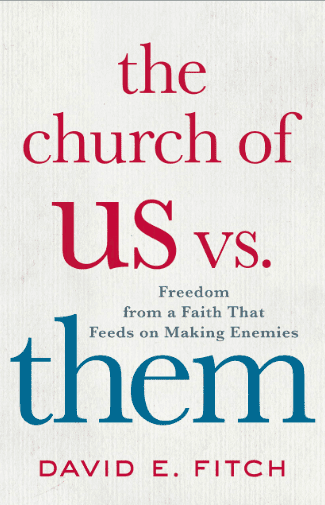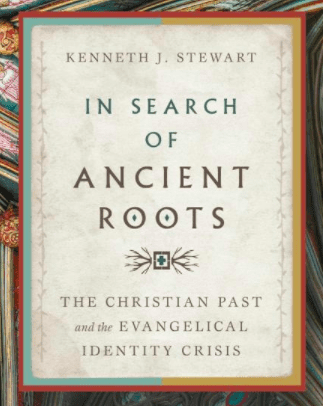I have had the opportunity to participate over the last few days in a workshop on Evolution and Christian Faith that is a part of the BioLogos grant program. It is always refreshing to be part of a gathering that values intellectual engagement with our faith and incorporates worship into the meeting. Those who work in a Christian environment, at a church, college, or seminary, can’t properly appreciate the power of this experience. At this workshop I also participated in a panel discussion centered on faith and vocation. My introductory presentation drew on some resources I’ve discussed on this blog before, but brought them together for the panel discussion in a somewhat different fashion.
 The Environment. Perhaps the best way to start is to describe something of the environment. A few years ago Elaine Howard Ecklund, published a book Science vs. Religion: What Scientists Really Think. This book presents results from a survey of faculty in the sciences (chemistry, biology, physics) and social sciences (sociology, economics, political science, psychology) at a selection of 21 top research universities. As it happens, I am a professor at one of the universities included in this project and one of the people who answered the survey (not one selected for a more in-depth interview however). In fact, since finishing my BA at a Christian college (Bethel in Minnesota) I’ve spent all but three of the last 32 years as graduate student, post doc, or professor at schools included in this survey. Ecklund’s book gives a pretty good picture of what it is like to be on the faculty of a secular university in the early 21st century. About 64% of the professors surveyed categorize themselves as atheist or agnostic – compared with 6% of the general population in the US. About 28% are believers, at least sometimes, compared with 84% of the general US population. Yeah, that seems about right.
The Environment. Perhaps the best way to start is to describe something of the environment. A few years ago Elaine Howard Ecklund, published a book Science vs. Religion: What Scientists Really Think. This book presents results from a survey of faculty in the sciences (chemistry, biology, physics) and social sciences (sociology, economics, political science, psychology) at a selection of 21 top research universities. As it happens, I am a professor at one of the universities included in this project and one of the people who answered the survey (not one selected for a more in-depth interview however). In fact, since finishing my BA at a Christian college (Bethel in Minnesota) I’ve spent all but three of the last 32 years as graduate student, post doc, or professor at schools included in this survey. Ecklund’s book gives a pretty good picture of what it is like to be on the faculty of a secular university in the early 21st century. About 64% of the professors surveyed categorize themselves as atheist or agnostic – compared with 6% of the general population in the US. About 28% are believers, at least sometimes, compared with 84% of the general US population. Yeah, that seems about right.
 According to a separate survey by Gross and Simmons the numbers are a bit better for University and College Professors across the full range of institutions. Their survey included research universities, liberal arts colleges, local state schools, colleges with religious affiliation, and community colleges. In this survey only 23% categorize themselves as atheist or agnostic and 56% are believers. Still, there are significantly more professors who claim atheism or agnosticism than members of the general public who claim to be atheist or agnostic.
According to a separate survey by Gross and Simmons the numbers are a bit better for University and College Professors across the full range of institutions. Their survey included research universities, liberal arts colleges, local state schools, colleges with religious affiliation, and community colleges. In this survey only 23% categorize themselves as atheist or agnostic and 56% are believers. Still, there are significantly more professors who claim atheism or agnosticism than members of the general public who claim to be atheist or agnostic.
 About 25% of the professors surveyed by Ecklund claim a Christian faith of some variety, Protestant or Catholic. Something like 2% of the faculty will claim an evangelical Christian faith, with a slightly larger percentage avoiding the term “evangelical” but still holding a serious orthodox Christian faith, either Protestant or Catholic (maybe ~5-9% total). The remaining 14-18% are more liberal in their theology.
About 25% of the professors surveyed by Ecklund claim a Christian faith of some variety, Protestant or Catholic. Something like 2% of the faculty will claim an evangelical Christian faith, with a slightly larger percentage avoiding the term “evangelical” but still holding a serious orthodox Christian faith, either Protestant or Catholic (maybe ~5-9% total). The remaining 14-18% are more liberal in their theology.
While Ecklund found that relatively few of the atheists and agnostics are openly antagonistic toward believers, about 5% are. For many of the rest it is simply a foregone conclusion that no reasoning person would hold to a faith. In an environment that prides itself on tolerance, it is still common to hear dismissive remarks (and sometimes insulting remarks) directed toward those who hold a conservative Christian faith. As a result, many of us keep a low profile on all fronts.
 Loss of Faith. One final bit of background – for this group of faculty as a whole there is a large drop in faith from childhood to adulthood. In contrast there is relatively little shift in the US population as a whole, especially among Protestants. Most people remain in the faith in which they were raised. Christian Smith, a sociologist at Notre Dame University, has found a similar trend in his work – the loss of faith is far less than often feared.
Loss of Faith. One final bit of background – for this group of faculty as a whole there is a large drop in faith from childhood to adulthood. In contrast there is relatively little shift in the US population as a whole, especially among Protestants. Most people remain in the faith in which they were raised. Christian Smith, a sociologist at Notre Dame University, has found a similar trend in his work – the loss of faith is far less than often feared.
The reasons for this trend among scientists are not clear. There are several possible explanations for the departure from relative stability of the general public.
1. Education removes the reason for God.
God is viewed as “simply” an explanation for gaps in understanding. As the gaps close, there is no longer a need for God.
2. Education introduces a dissonance, a conflict between the evidence and Christian faith.
Age of the earth, evolution, and Old Testament studies are key examples. Some views and understanding of Christian doctrine must mature and adjust to the evidence. But if these adjustments seem to cut too deeply, or if a person begins to feel what they’ve been taught about Christian faith is no more reliable than Santa Claus, the Tooth Fairy, or the Easter Bunny, then the most logical thing to do is to walk away.
3. The University environment may be hostile to faith.
There can be pressure, both overt and subtle to leave the faith. To lose the respect of one’s peers is a severe and real possibility. Who wants to be thought a fool? In addition, there is often subtle discrimination.
A passage from the Northwest Ordinance (1787): “Religion, morality, and knowledge, being necessary to good government and the happiness of mankind, schools and the means of education shall forever be encouraged” is displayed prominently on our campus in a number of different places. But it often elicits an apology. That religion might be thought necessary (or even useful) is seen by many as an embarrassment.
The sociologists tell us (and it came up at this workshop) that the network of relationships people have is a reliable predictor of the probability of a change in view. Community is a powerful influence.
4. The group may be self-selected.
People of faith tend to pursue other career paths. Perhaps this is a response to some of the factors listed above, especially the impression that the environment is hostile. I have known some talented scholars who chose not to pursue a career in academia because of the environment. It can, however, also result from a difference in values. The research University is a competitive environment that demands a commitment of time and energy. Christian values may well lead many in a different direction. This concentrates the effect within the sample of professors.
5. Loss of faith precedes and opens an interest in higher education
Many of those interviewed by Ecklund attributed their loss of faith to factors they encountered long before the decision to pursue a career as a professor. The absence of a place within a faith community for honest, inquisitive, hard questions and/or a real or perceived hypocrisy lead to a loss of faith for a number of those she interviewed.
Whatever the reason or reasons, many professors will tell a tale of childhood faith, a growing realization that their faith was no longer viable. I’ve heard three or four such stories from colleagues over the last several months. They often find it hard to believe that such a realization would not also occur to all who are reasonably intelligent scholars. The tolerance of those who undergo a conversion for the faith they’ve left behind is often quite low.
Faith and Vocation. So what, then, does it mean to integrate Christian faith with vocation as an academic and a scientist in a secular research University? … in an environment where faith is uncommon and not viewed favorably. There are many different answers to this question – all I can really do here is give my impressions.
Tim Keller, in his recent book with Katherine Leary Alsdorf, Every Good Endeavor: Connecting Your Work to God’s Work, suggests that we should ask questions that focus our work on the mission of God. What story do we see ourselves as a part of? One of the most significant ways that Christian faith impacts work, for better or worse, is in the story we find ourselves in.
Everyone sees themselves as part of a story that makes sense (perhaps) of life, death, and the universe. There is a problem, a plot, and a mission. We also see ourselves as actors within this story. As Christians, the way we understand this story and view God’s mission in the world will impact the way we go about life. The full sweep of scripture from creation (Genesis) through consummation (Revelation) tells our story.
If we believe that the meaning of life is governed by the Great Commandment to love God and love our neighbor, (Mt 22, Mk 12, Lk 10) and that the operating principle to carry out this command is servanthood, this influence all parts of vocation. But there is an enormous disconnect between the secular University and the Christian experience of Sunday worship and perhaps a fellowship group, often accompanied by little if any real education and depth. This disconnect makes the two seem like different countries with completely different cultures. The numbers in my brief introduction to Elaine Ecklund’s book give a bit of the picture. The narrative discussion compiled from her interviews provides an even more complete picture.
Keller lists a series of questions that can help to shape a Christian approach to work (p. 181). A thoughtful answer to these questions will go a long way toward helping anyone connect their vocation with God’s mission, including within the secular University. I gave initial reflections to many of these questions on my original post on this chapter of Keller’s book (Connecting Gospel and Work). The last question I didn’t answer on my earlier post – and is worth a reflection here in the context of faith and vocation.
What opportunities are there for serving and witnessing?
Because I am a scientist and an educator, one of the ways of serving and witnessing is by using my talents and abilities to serve the needs for a credible witness in the highly critical atmosphere of the University. I do not do this as well as I should. Another is to be a witness in the church. Because I am an educator, among other things, my vocation can and should spill over into the church.
How this works out – a few reflections.
First – It does not mean doing my science any differently. The laws of chemistry and physics are not viewed any differently – except that they are viewed as the result of God’s power and plan.
Second – It means taking my faith as seriously as I take my science and work. For me, at least, this requires having a thorough understanding of the Christian faith both Christian theology and the Bible. In an atmosphere where every idea is challenged and faith is not looked on favorably the typical Christian answers are often not enough. A so-called Sunday School faith (in the uncomplimentary sense of the term) will not cut it. Shallow answers will receive the reaction they deserve.
Third – It means watching out for the idols of accomplishment, recognition, money and power. Keep priorities in line with the great commandments. Among other things this means treating people well, viewing my graduate students first as people and as students. It also may influence some of the problems I choose to work on.
Finally – it means, for me, making time to engage with the issues at the core of the apparent conflict of science with Christian faith. One way of doing this is through involvement with programs like BioLogos and ECF. Another way I’ve found useful is to facilitate a conversation on this blog that focuses on the concerns that Christians and non-Christians have regarding the intersection of science and faith.
Much of the discussion in Elaine Ecklund’s book talks about the need for religious scientists to engage in the discussion, bringing both credible faith and credible intellectual engagement to the table. This isn’t a problem that is going away any time soon and it is worth some time and effort.
It is an unappreciated effort, both in the church and in the academy.
There is more that could be said, but this is more than enough for a start.
How do you connect faith and your vocation?
If you wish to contact me directly you may do so at rjs4mail [at] att.net.
If interested you can subscribe to a full text feed of my posts at Musings on Science and Theology.











